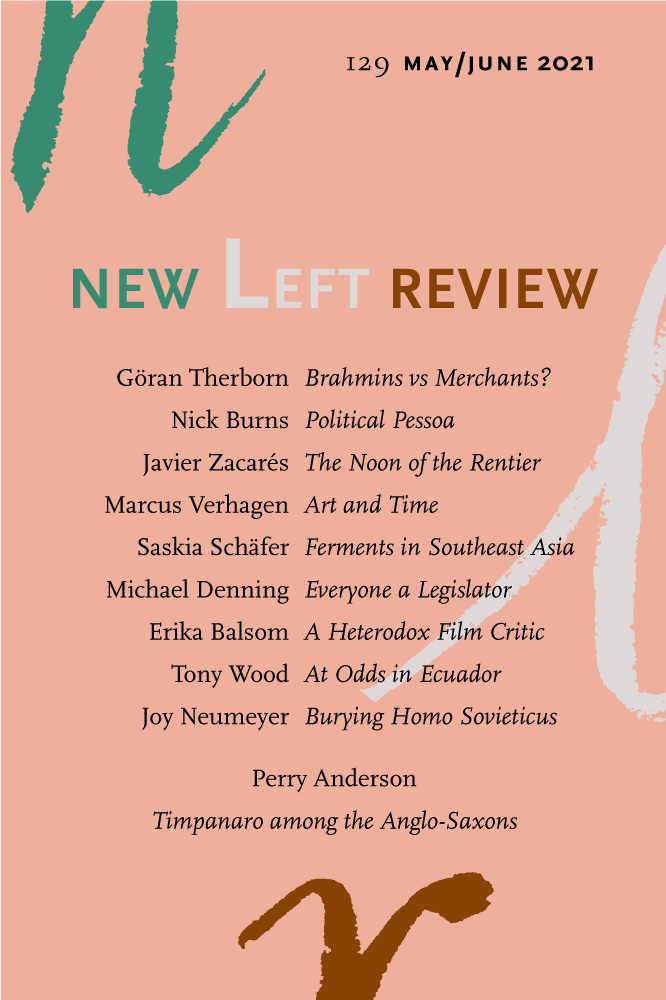Critical assessment of a landmark international survey of electoral demographics, mapping the social fractures blunting opposition to inegalitarian politics. The weight in these of income and education, class and identity, and the longer historical arc of national political orders. What is the outlook for neoliberal economics after the pandemic, not least in the country where they were first violently imposed?
What is the principal legacy today of Gramsci’s writing on politics? Often taken to be a theory of the party as a ‘modern prince’ derived from Machiavelli, can this still be so in an epoch when political parties are everywhere in decline? Michael Denning argues that what now matters in Gramsci’s work is his theory of organizing as a premonitory form of democratic legislation.
Are bloated finance and the information economy signs of something other—and possibly worse—than capitalism? If the latter’s defining characteristic is growth, might an era typified by stagnation signal its supersession? An attempt to bring into dialogue the work of Brett Christophers, McKenzie Wark and Aaron Benanav.
Pessoa was one of the greatest and strangest poets of the 20th century, famous for the elusive profusion of his ‘heteronyms’. Yet in light of the first biography worthy of him, and recent Portuguese studies of his work, he emerges as perhaps the most passionate—and productive—political writer of all the original modernists, as Portugal lurched from the noisy overthrow of its monarchy to the quiet tyranny of Salazar.
From recent reflections by Jacques Rancière on how capital partitions the time of those it controls, to a stoppage by Maria Eichhorn of her exhibition to allow workers at the gallery to articulate their own experience of labouring in it—lines of insurgent art that expose and challenge segmentations of time, even as, perforce, they illustrate them.
Advocate of philosophical materialism; incisive critic of Freud and of post-Saussurean linguistics; noted philologist: considerations on the reception of Sebastiano Timpanaro in the Anglophone world, and his relations with New Left Review in particular.
Saskia Schäfer on John Sidel, Republicanism, Communism, Islam: Cosmopolitan Origins of Revolution in Southeast Asia. The different paths and outcomes of anti-colonial revolution in Southeast Asia.
Erika Balsom on Annette Michelson, On the Wings of Hypothesis: Collected Writings on Soviet Cinema and On the Eve of the Future: Selected Writings on Film. Variant impulses in the writing of a pioneer theorist of avant-garde cinema.
Tony Wood on Thea Riofrancos, Resource Radicals: From Petro-Nationalism to Post-Extractivism in Ecuador. Indigenous resistance to statist development as background to an electoral defeat of the left in the Andes.
Joy Neumeyer on Gulnaz Sharafutdinova, The Red Mirror: Putin’s Leadership and Russia’s Insecure Identity. Sociological inquiry into the bases of Putin’s support, beyond hoary anti-Soviet stereotypes.
